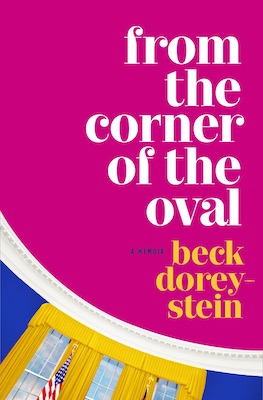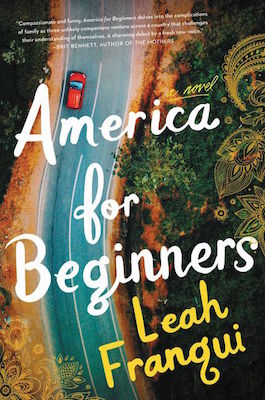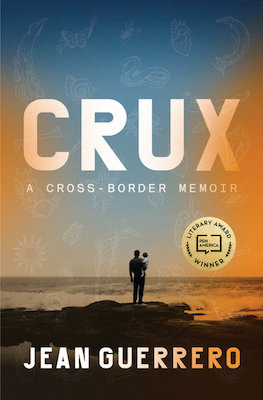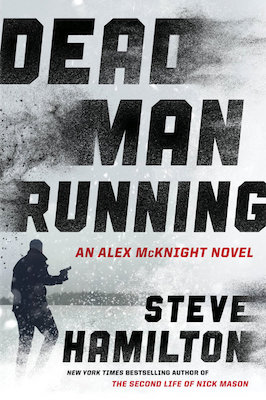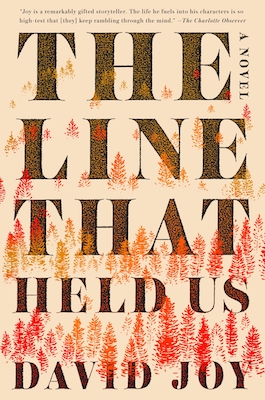Every month, the Writer’s Bone crew reviews or previews books we've read or want to read. This series may or may not also serve as a confessional for guilty pleasures and hipster novels only the brave would attempt. Feel free to share your own suggestions in the comments section or tweet us @WritersBone.
Hello Lighthouse by Sophie Blackall
Rebecca Weston: I don’t care how old you are—five or 95—you need to read this sweet, nostalgic, and hopeful picture book by the inimitable Sophie Blackall (Finding Winnie, Caldecott Medal-winner, and Ivy & Bean). Hello Lighthouse is the story of a family who tends to and lives inside a lighthouse. Through seasons warm and icy, through childbirth and illness, calm seas and rough, the family keeps the light shining for the ships that pass it by. Until one day… But while the family may not always be needed to keep the light going, their own lights do not dim. And it is stories like this one that keep ours going strong. Blackall’s illustrations are emotionally layered—warm and bright, dark and frightening, muted and sad, as the scene requires—but always comforting. Hello Lighthouse is a celebration of life’s constants and changes, of the past and the future, and the journey that brings us from one to the other. Take it with you to the beach this summer, and read it all year long.
The Pisces by Melissa Broder
Taylor Krajewski: I never saw “The Shape of Water,” but I imagine that The Pisces could be a companion piece. Following a difficult break up, main character Lucy travels to Venice Beach to house sit/dog sit for her sister and work on her Sapphos thesis. While wandering the beach at night, she meets Theo, a merman, and the two enter a passionate relationship. A great exploration of love, desire, and discovering one's true values.
The Masterpiece by Fiona Davis
Daniel Ford: I zipped through Fiona Davis’ compelling and poignant new novel The Masterpiece in two sittings. The novel, set in New York City’s Grand Central in two very different eras, features two unforgettable heroines, Clara Darden and Virginia Clay. Clara is an aspiring artist struggling against the stifling sexism of the 1920s while teaching at the Grand Central School of Art. Virginia is a disillusioned divorcée working at Grand Central’s information booth during the terminal's nadir in the 1970s. Davis masterfully intertwines both women’s stories, while also charting Grand Central’s glamorous beginnings, near extinction, and eventual salvation. Several historical figures make cameos (hey there, Jackie O!), Clara and Virginia’s supporting cast add humor and heartache in equal measure, and Davis’ engaging prose makes each page a delight to read.
From the Corner of the Oval by Beck Dorey-Stein
Daniel: I’m glad Beck Dorey-Stein took David Remnick’s advice—yes, that David Remick—and kept a lot of notes during her tenure as a White House stenographer because this memoir is one of the more memorable ones I’ve read all year. Honest is one on the words that's a constant in all the buzz about this book, and it certainly is that, whether it's the professional or personal situations Dorey-Stein finds herself in. I almost didn’t want to finish this because I knew what and who was coming in at the end. It still feels jarring reading about what happened in November 2016 and January 2017. Beck Dorey-Stein said during our recent conversation that she told family and friends that it wasn’t as bad as they thought. “It’s much worse,” she remembered saying. While that has certainly proved to be the case, Dorey-Stein’s memoir reminded me of a time when public service was something to be sought after and admired rather than commoditized and mocked. One of my favorite moments in the book is when Dorey-Stein recounts running into a gruff President Barack Obama, smarting from his first debate loss against Mitt Romney, at the gym. He put his head down, sweated out his anger and disappointment, and then got back to work. So did Dorey-Stein, and so will the country once this orange nightmare is over.
America for Beginners by Leah Franqui
Daniel: Leah Franqui's wonderful debut America for Beginners features one of my favorite opening lines of 2018:
"You're going to get violated, madam, that's all I have to say on the matter."
The "madam" refers to Pival Sengupta, the main character who we find preparing for a trip to America at the beginning of the novel. Pival has lost her husband quite recently, but it's her son's mysterious death that weighs on her more. She's headed to a strange land in an attempt to find out whether he met his demise or something else entirely. Franqui's voice is assured far beyond her years and America for Beginners crackles with heart and humor. American culture is sharply dissected through Pival's eyes, giving us an outsider's view of a country whose beliefs and traditions are rapidly unraveling. It's yet another essential read for the Trump era.
Crux by Jean Guerrero
Daniel: The word “border” takes on new meaning in journalist Jean Guerrero’s haunting memoir. The physical border between the United States and Mexico is a starting point, but Guerrero’s exploration of her family history heads toward more ephemeral borders. The border between lucid and paranoia. The border separating father and daughter. The fine line drawn between bad luck and a cursed life. Guerrero explores all of these themes, and her own coming of age, while also delving into Mexico’s violent recent history. I had to remind myself more than once that I was reading a work of nonfiction because of her mesmerizing prose.
Dead Man Running by Steve Hamilton
Sean Tuohy: Any time you open a Steve Hamilton book you know you are in for a hell of a ride and his latest Alex McKnight novel is no exception. A serial killer is caught by the F.B.I., but before they can celebrate they’re told there is another victim who might still be alive. The madman will only speak to one person: Alex McKnight. This sets off a series of bloody encounters as Alex embarks on a cross-country chase to stop his fanatical foe. Hamilton is a writer who wastes no time. He knows what the readers want and gives it to them, but he never loses anything in the process. The characters peel off the page and it was great to see Alex back in action.
The Recovering: Intoxication and Its Aftermath by Leslie Jamison
Taylor: This was an excellent analytic piece about the use of addiction/alcoholism in literature. The author juxtaposed the experiences of famous writers battling with addiction against her own struggles with alcoholism. The Recovering is Jamison's second piece of non-fiction, and I've already added her first, The Empathy Exams, to my to-read list.
The Line That Held Us by David Joy
Daniel: David Joy continues to set the bar high—not only for himself, but also for anyone that writes about crime, family, and Southern living. Joy, who is a Writer’s Bone contributor, blurs the line between good and evil in his third novel, The Line That Held Us, to the point where it barely exists. The story features incredibly broken people living on twisted hope and borrowed time. My allegiances to certain characters swung wildly from paragraph to paragraph. There are multiple dark, emotional moments in this novel that take several shots of Jefferson’s to get over. I marvel at Joy’s ability to pack all of this stellar character work into a tightly wound, revenge-fueled thriller. This book proves that crime writing will never sound as poetic or authentic than it does from Joy’s pen. I have a good feeling he’s just getting started.
Daniel: From the first word of Homeplace, a reader can tell that this was a labor of love for John Lingan. At the book’s center is Jim McCoy, an earnest, former traveling want-to-be music star who first introduced the airwaves to Patsy Cline. Jim’s story is the starter pistol that leads Lingan to investigate more characters and tall tales that populate Winchester, Virginia and the surrounding area. There is more than a touch of the poet in the author’s prose, and his four years of research and reporting give readers a clear picture of a Shenandoah town within an America in flux. It wouldn’t hurt to have some bourbon or “Rocket Fuel” on hand—while listening to Patsy, of course—as you read this lyrical debut.
Boise Longpig Hunting Club by Nick Kolakowski
Sean: The best way to describe the latest from gonzo noir writer Nick Kolakowski is: "Whoa." This heart-pounding and twisted tale is a retelling of “The Most Dangerous Game” set in America’s heartland. Jake Halligan is a smart and tough bounty hunter who finds himself in the gunsights of a deadly group. Jake fights for his life and has his sister Frankie, an arms dealer, for back up. Kolakowski writes about the dark side of human nature but masterfully injects humor and likable characters.
The Night Is Never Black by Doug Richardson
Sean: It’s time to return to Luckyland! In Doug Richardson’s newest novel, trouble magnet and L.A. County Sheriff's Deputy Lucky Dey is hell bent on finding answers when a loved one is put in harm’s way. Over the course of five days, Lucky rips through the City of Angels, and finds himself in the middle of multimillion-dollar kidnapping and extortion plot. Richardson is five books deep into this crime series, and he keeps the thrills coming and the characters growing. At their core, the Lucky Dey books are about crime in Los Angeles and how it affects the population. The Night Is Never Black is a sweeping crime story that involves cops, criminals, housewives, and everyone in between. There are no "good" guys or "bad" guys. Like in the real world, all the characters reside in a gray area. In Richardson’s Luckyland, you can find yourself cheering for the criminal, booing the cop, and expressing surprise at how quickly some people lose their moral compress.
Locked Gray / Linked Blue by Kem Joy Ukwu
Daniel: The stories within Kem Joy Ukwu’s debut collection Locked Gray / Linked Blue are extraordinary. Her characterization is incredible. Whether it was Olive, an older cleaning woman of sorts who is at a real crossroads in her life or the daughter who absconds with her mother’s wedding dress and plops down at a bar, what Ukwu was able to do to bring these characters to life in such a short window was truly impressive. There are so many timely themes in Locked Gray / Linked Blue, everything from family ties to the tug of a distant home to assimilation and alienation. I read this collection in one sitting, and yet the characters remain with me weeks later. Kem Joy Ukwu has a voice we’re going to want to hear much more of in the future.
The Third Hotel by Laura van den Berg
Nick Kreiss: Read this book at least twice. Laura van den Berg's enigmatic marvel of a novel will hit you in places you didn't know existed. Her writing is exquisite, her philosophical and intellectual commentary is riveting and illuminating, and her ability to play with unconventional narrative devices is unmatched. Don't read reviews (though they are all deservedly glowing). Go into this book totally naked. The Third Hotel felt like a metaphysical battleground for my subconscious. Even more remarkable, I think many people share that opinion. You're going to have a lot of fun with this one. Be prepared to experience something very new and very accomplished.
Aesop Lake by Sarah Ward
Caitlin Malcuit: Sarah Ward’s Aesop Lake is a great teaching tool for young readers, destined for classroom and summer reading curriculum. The ethical lessons of Aesop’s fables provide the framework of the story, which follows the paths of two high schoolers as they navigate the aftermath of a hate crime. Students and adults alike will learn that it takes more than lip service to be an ally thanks to Ward’s empathetic writing and background in social work.
God, War, and Providence by James A. Warren
Dave Pezza: James A. Warren creates a new level of context surrounding the oldest English colonies in America. He does so by painting the Massachusetts Bay Colony, and its Puritan brethren, as dastardly imperialists intent on imposing their strict way of life on all beings of New England. Warren pits these devils against the fledgling colony of Rhode Island, which founded by the widely respected Roger Williams, whose preaching of peace and freedom from religious persecution caused his banishment from the aforementioned colony. Warren’s narrative is well documented, insightful, and wholly convincing in its depth and condemnations. This book is a must read for colonial history buffs and Rhode Islanders who would like to know more about the events that led to their state’s inception.
The Emperor of Shoes by Spencer Wise
Rebecca: The Emperor of Shoes is an expertly crafted father-son character study, a compelling political drama, and a touching love story. Twenty-six-year-old Alex and his father, Fedor, own a family business—a shoe factory in China. Their relationship is fraught. Fedor is stuck in the past, whereas Alex is beginning to form a vision for the future: sleeker designs, less corruption, and the end of exploitation. But Alex’s growing feelings for Ivy, a factory worker with questionable motives, complicates this vision. Woven throughout the narrative, shoes and feet are strikingly depicted as symbols of every facet of life, from sexual desire to oppression to something sacred. Also woven throughout are pieces of the Jewish faith—traditions, practices, sayings, and flashes of collective memory. As we see Alex grappling with how to be a good son, a good Jew, and a good person, he realizes that, sometimes, there is power in saying simply, “Here I am.”
I love everything about this book—all 1,000 pages of it. It’s a collection of short stories, plays, and journalism about Russia in early to mid-20th century. Babel, who was a complete nerd, rode with the Cossacks in the Polish-Soviet War of 1920 as a war correspondent, and, somehow, he wrote the most tender and beautiful stories about this experience. There are also stories about Jewish life in the Odessa ghetto. Accused of being a spy, Babel was arrested, his name purged from Soviet history, and he was eventually assassinated by Stalin. Babel’s stories are gorgeous for the way the narrator sees a cruel and violent world through a poet’s sensibility. Some of my favorites are his coming-of-age stories. The opening to “My First Fee” goes like this: “To be in Tiflis in spring to be twenty years old, and not to be loved—that is a misfortune.” It’s sort of like Henry Miller if he was Jewish, stuck in a war, and rambled less. So maybe nothing like Henry Miller. But it’s raunchy, funny, and pitifully sad. Babel is a total outsider in a violent, poor, and deeply anti-Semitic world.
We Need New Names by NoViolet Bulawayo
I adore NoViolet Bulawayo’s We Need New Names. The main character, Darling, is a child maturing, young and naïve, but she gets hip to the disillusionment of the American dream once her aunt brings her here from Zimbabwe. There’s a sense of hope but also despair at the loss of tradition as Darling yearns for a sense of self, caught between these two countries. Darling says, “When somebody talks to you about home, you have to listen carefully so you know exactly which one the person is referring to.” Bulawayo’s story unfolds effortlessly and rocks you harder today’s divisive times regarding immigration. As Darling reflects on being unable to return to visit family in Zimbabwe –she’s an illegal immigrant—she states, “They died waiting…We could not attend their funerals because we still had no papers, and so we mourned from afar.” It’s about escaping, the fallout of colonialism, and it’s pretty damn heartbreaking.
Good Neighbors by Joanne Serling
Joanne Serling’s novel Good Neighbors satisfies your desire to break into your neighbor’s house and snoop around. Mine keep bringing me banana bread so they’re either cool or something’s up. It’s Georgia, you never know. Nicole’s (the narrator) voice is quick, urgent, and honest about herself and her posse of rich of suburbanites in Beantown. It’s through her eyes we see the fragility of adoption, its pains and promises.
“She’ll hug anyone,” Paige called from the other end of the room. “It’s part of the orphanage thing.”
That’s the proud (?) mother of Winnie, the newly adopted Russian girl. It makes you wince. The narrator becomes obsessed with Winnie at once. “I hugged her back, a thick, syrupy feeling creeping up from my chest and into my throat…I loved her already.” It gets tense and creepy from there, fearlessly prying into what goes on behind the white-picket fences of suburbia. Nicole pulls no punches in illuminating her community’s flaws and humanity, as well her own. Nothing is black and white—that’s what I love about it. You always wonder how much you know the people living next door, and Serling is a master at showing the cracks in these seemingly perfect lives. You won’t put it down.
I Served the King of England by Bohumil Hrabal
I read this book until it fell apart. Our narrator is a low-level waiter at the Prague Hotel. Hrabal, one of the great Czech writers of all time, takes us through the narrator’s life from poverty to riches and back again. It gives you the history of Prague at the onset of Communism. Part of the genius of the book is the way it borders on magical realism. All these absolutely ridiculous things keep happening that border on the unbelievable, but the book remains this heartbreaking kind of vivid realism. It’s sort of like how everything looks the first time you smoke pot. The world is wondrous again. That’s how he writes. Pushing metaphors and using tons of run-on sentences: “In this country-side even the rocks shed water, and each time I washed my faced in the brook, the water was cold and clear and I could see the juices from the people buried in the graveyard above flowing down into this little brook all the time, distilled and filtered by the beautiful earth that can turn corpses into nails to hang myself on and pure water to wash my face in…” It’s hard to describe this book. Just read it. It’s reflective, philosophical, funny, crushing.
The Master and Margarita by Mikhail Bulgakov
The devil comes to Moscow with an insane entourage. That’s how this starts. It’s the book you’d want to write if you were living under a despotic lunatic. Luckily that could never happen here in America. Scathing in the way it satirizes the nuances of Russian communism under Stalin, (yes, that moron again), the novel achieves its greatest defiance by exhibiting an awesome power of imagination and humor in the face of repressive policies, nationalist propaganda, and anti-intellectualism. Bulgakov is just showing off a lot of the time. There’s a whole subplot retelling the story of Pontius Pilate. I have no idea why, but it rules. Get an annotated version.
NovelClass
NovelClass returns on Sept. 4! Dave Pezza and an all-star panel discuss Domenico Starnone’s Trick. Subscribe and tune in!




